Research encompasses engineering analysis, developing evidence and providing advice to a number of city and district councils. The work includes citywide analysis of building stock performance, providing evidence on required investment for building refurbishment as well as potential solar PV power production from all buildings.
In Southampton, this study (and others) is now the foundation for the recently announced Green City Charter. In Portsmouth, various studies that resulted in policy changes and informed decisions around infrastructure investment. The work resulted in new tools to assist UK’s local authorities for future investment planning and carbon target setting.
Engineered on geographic information systems (GIS), a building physics model was developed to allow refurbishment options to be applied and modelled, providing estimates of energy savings as a result of specific interventions. Furthermore, the model automatically identifies suitable roof areas for deploying solar systems – photovoltaics, or thermal, using high-resolution raster data collected by remote sensing. The result is a highly detailed 3D model of the entire city, rebuilding constructions and trees on a virtual environment. The model is able to accurately simulate solar radiation of building surfaces, taking into account factors such as shadows on roof surfaces at different times of the year. The model is able to combine multi-layer analysis and then identify suitable buildings that are feasible for installing solar systems.

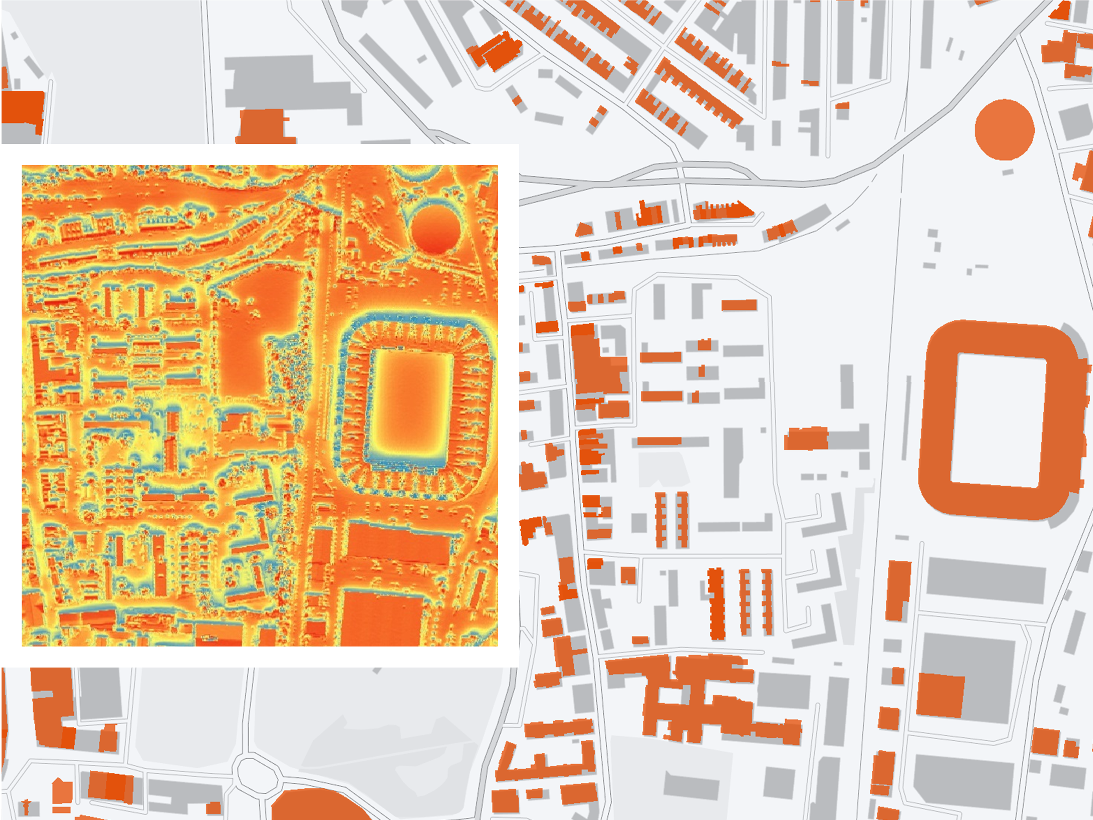
Updates:
UKRI Press Release featuring ECCD research – LATENT 2025 
LATENT project featured in a new UK Research and Innovation (UKRI) press release
Assessment of potential for rooftop solar PV in Hampshire and Sussex 2025 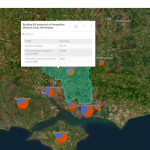
Rooftop solar means greater generation of renewable energy, closer to where it is used. However, understanding the possible scale of rooftop solar requires mapping the potential, building by building.
ECCD exhibit at the Southampton Science and Engineering Festival (SOTSEF) 2024 2024 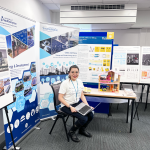
The Energy and Climate Change Division exhibited at The Science and Engineering Day held across Highfield Campus and Boldrewood Innovation Campus on Saturday 16th March 2024.
Guidelight – UK Power Networks, electricity distribution 2024 
Low-income and vulnerable consumers receive grant funded LCTs through local authority retrofit schemes, but without supporting households to switch tariffs or using digital optimisation tools, retrofit schemes risk creating a socio-technical performance gap that this project will evidence and address through a range of capability-based interventions that are tailored to those in vulnerable circumstances.
Overheating Risk Assessment for UK schools 2023 
This project is a response to the UK’s overheating risk introduced by climate change. By 2070, climate projections for the UK estimate an increase in seasonal average temperatures of up to 5.1°C in summer as well as more intense and frequent extreme events such as heat waves.
ECCD present at the International Conference on Sustainable Energy, SET 2023 in Nottingham, UK 2023 
ECCD presented 8 papers at the 20th International Conference on Sustainable Energy (SET 2023), Nottingham, UK, with Professor Bahaj also presenting a keynote address
ECCD host Board Members of Crédit Agricole Normandie 2023 
ECCD hosted a delegation of Board Members of Crédit Agricole Normandie with representatives from Southampton City Council, Equans and Exxon talking to the delegation about climate, energy and innovation.
ECCD present preliminary LATENT field trial findings 2023 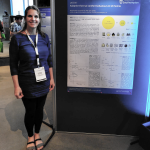
Having recently concluded the first heating season trial period for the LATENT field trial the research team have bee presenting preliminary findings at a number of events.
ECCD host Pioneering Places Workshop 2023 
ECCD host a hybrid workshop with local stakeholders about Southampton’s non-technical barriers on the pathway to net zero as part of the Pioneering Places project.
Pioneering net zero delivery for the City of Southampton 2023 
This project, currently in its second-phase will build on Southampton’s characteristics, opportunities and challenges through developing a combined techno-economic methodology coupled with stakeholder engagements to support a coherent feasibility studies to address its pathway to net zero.
ECCD Research on floating solar PV referenced by BBC Future Planet 2022 
BBC Future Planet article ‘The floating solar panels that track the Sun’ references recent 2021 ECCD paper, ‘Floating solar PV to reduce water evaporation in water stressed regions and powering water pumping: Case study Jordan’.
ECCD undertake research for the NFRC building resilience of roofing technologies in a changing climate report 2021 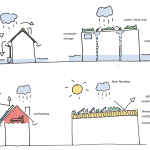
NFRC report presents research undertaken by ECCD investigating the impact that climate change will have on roofs covering the existing stock of buildings across the UK.
Renewable Energy in Saudi Arabia 2021 
Energy and Climate Change Division (ECCD) undertake research to support the Kingdom of Saudi Arabia’s (KSA’s) Vision 2030. The research is in collaboration with the Department of Electrical and Computer Engineering, King Abdulaziz University (KAU), supported by King Salam Bin Abdulaziz Chair in Energy Researcg and KSA Ministry of Education.
Heat Networks 2020 
Heat networks provide a high efficiency, low cost option for energy supply based on combined heat and power concepts. Analysis of heat networks performance and deployment of smart heating technologies are mainly applied in heat networks in social housing settings within the cities of Southampton and Portsmouth.
REPLENISH – REimagining PLaces and ENgineering Infrastructure Systems for Health 2020 
REPLENISH contends that if our infrastructure systems and their associated cityscapes were designed with positive health and wellbeing outcomes as the primary design criterion, huge social and economic benefits would result. REPLENISH therefore proposes, by adopting systems thinking and systems engineering (or ‘doing’), to rethink and redesign our engineered infrastructure systems and cityscapes.
Realising the Isle of Wight’s aspiration for renewable energy power generation and local consumption 2019 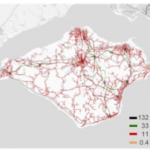
In the UK, the Isle of Wight (IoW) wish to become self-sufficient in electricity from renewable sources, which is likely to be achieved through the deployment of utility-scale solar PV farms augmented with rooftop solar PV systems.
Site suitability analysis for renewable off-grid systems using GIS-MADM in Sudan 2019 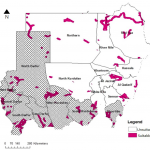
This research aims to investigate the potential for implementing clean off-grid energy systems for rural electrification in Sudan. Analysis using the GIS (Geographic Information System) -MADM (Multiple Attribute Decision Making) method will identify sites suitability for renewable off-grid electricity systems. The methodology includes four main strands of work: (a) assessment of renewable energy availability in ...
Impact of solar PV penetration on city grids in the Kingdom of Saudi Arabia 2019 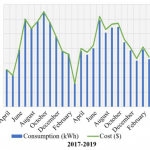
This research studies the impact of PV penetration on the grid of the University of Jeddah Campus, knowledge generated will support analysis on a medium size city in KSA to displace fossil fuel power supply currently been used.
Supply chain readiness for renewable energy expansion in the Kingdom of Saudi Arabia 2019 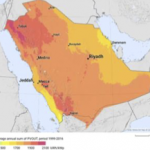
Saudi Arabia is aiming to intensify the adoption and the advocacy of their renewable energy sector, to localise 30% in the short term and 60% in the long term of its value chain. To achieve this, a local content market should be large enough to supply the planned 27GW capacity contained with 35+ renewable energy ...
Transitioning Bangladesh to renewable power 2019 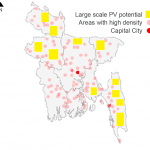
This research analyses the policies required to guide Bangladesh through its sustainable energy infrastructure transformation to support its aspiration of becoming a developed country by 2041. Based on the model outcomes, the research will suggest what renewable share in the energy mix should be progressively elevated in accordance with the future escalation in financial affordability ...
Key Cities Meeting – City and the Environment 2019 
21st February 2019 | University of Southampton The Southampton City Council has joined forces with the University of Southampton and hosted a Key Cities Meeting addressing challenges on air quality, energy efficiency, transport, and infrastructure development. The meeting urges local authorities to adopt a “healthy and prosperous” vision towards air quality and energy efficiency in towns and ...
Solar Shaded Car Park Project 2018 
This project aims to implement a demonstration programme encompassing an operational research and experimental analysis of how solar photovoltaics can be utilised and maintained as shading components in carports.
Liveable Cities – Case studies 2018 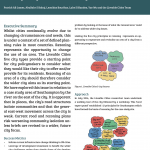
Alongside the Little Book Series, 9 Case Studies were produced from the Liveable Cities work to showcase the breadth and applicability of the Liveable Cities research to practice and everyday life.
Liveable Cities – Little Book series 2017 
Following the roadshows and a successful closing event in the House of Lords, the Liveable Cities – Little Book series are now available online to download as PDF.
Energy Demand & Supply in New Zealand: Early Impressions 2017 
It isn’t hard to find similarities between the British Isles and New Zealand. The traditions derived from the British immigration to the islands (and the South Island in particular) emerge as a common language; as familiar sports at which, for the most part, the Kiwis give us a good thumping; a liking for real ale, ...
SPATIALEC Global Fellowship launches 2017 
SERG’s Dr Ben Anderson has just started the outgoing phase of his EU H2020 Marie Skłodowska-Curie scheme-funded SPATIALEC Global Fellowship. Based at the University of Otago’s Centre for Sustainability, Ben will initially be working on combining time use and electricity monitoring data from the New Zealand GREEN Grid project with New Zealand Census data to produce ...
THERMOSS: Building and district thermal retrofit and management solutions 2017 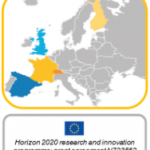
The THERMOSS project is a response to the 20% primary energy consumption reduction targets set by the 2012 European Energy Efficiency Directive (EED). This calls for effective and wide-scale building heating and cooling systems upgrade strategies. Such strategies will only be successful if they are based upon the right combination of technology innovation and ...
Modelling on-shore wind turbine locations 2017 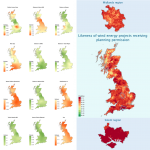
SERG PhD student Mikey Harper is working on a number of methods to assess the potential for wind turbine development in the UK. As part of this he has produced a map of on-shore wind turbine planning applications to date and has also developed a model for predicting the likelihood of planning success for future sites. To ...
SPATIALEC: Marie Skłodowska-Curie EU Global Fellowship 2016 
Dr Ben Anderson of the Sustainable Energy Research Group (SERG) at the University of Southampton has been awarded a prestigious three year EU Global Fellowship under the Marie Skłodowska-Curie programme. The two year outgoing phase of the fellowship will be hosted by the University of Otago’s flagship Centre for Sustainability where Dr Anderson will be embedded in the ongoing ...
UK – China Low Carbon Cities Project 2016 
City-wide analysis to propel cities towards resource efficiency and better wellbeing Many cities in the world are putting in place their own robust carbon reduction strategies in response to, or in advance of, leadership from central government. As the powerhouses of economic growth, cities use vast amounts of energy and consume resources from hinterlands that stretch ...
Potential of developing rooftop PV systems on SCC non-domestic buildings 2015 
This app shows the results of modelling roof panel PV generation for non-domestic Southampton City Council properties in Southampton, UK. Click on the ‘Large Map’ button to see the full interaction version hosted by ESRI/ArcGIS. The three buttons on the top right corner of the map can be used to “Search”, “Filter”, and “Change basemap”. Results are obtained ...
The optimum planning scale to achieve low-carbon cities 2015 
Title:The optimum planning scale to achieve low-carbon cities. Researcher: Michael Harper. Supervisors: AbuBakr Bahaj, Patrick James, David Richards. Abstract Cities are the hubs of society and a vast consumer of energy, with 75% of worldwide energy demand being consumed within them (European Commission, 2014). Despite this large figure, only a small percentage of this energy is produced within cities, ...
Impacts of Urban Interventions for the Reinvigoration of Secondary and Tertiary High Streets 2015 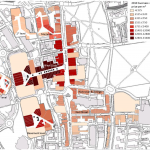
The aim of this work is to understand the impact of small-scale urban interventions on declining secondary/tertiary high streets and how this relates to stakeholders’ perceptions and behaviours. The study also investigates the hypothesis that undertaking small-scale interventions assists in generating a collective approach among stakeholders for the regeneration of secondary retail areas.
RENKEI Spring School – University of Southampton Southampton, UK, 22-29 March 2015 2014 
Theme: ‘District Energy Supply within Cities’ Date: 22-29 March 2015 Venue: University of Southampton Background RENKEI is the Japanese word for “collaboration” and in this context also stands for Research and Education Network for Knowledge Economy Initiatives. RENKEI is an initiative of six Japanese Universities, six UK Universities and the British Council Japan. The role of RENKEI is to offer a common ...
Liveable Cities second round of surveys online – details for participants 2014
Please follow the links below to complete your survey(s) by Monday the 17th of November if possible. Your ID number is on the e-mail and/or letter that was sent to you recently. Many thanks for your participation. If you have any questions, or if any of your contact details have changed or are incorrect, please ...
Liveable Cities 2013 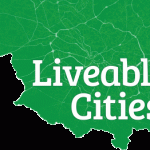
How do we address energy consumption to meet low carbon targets? How do we address infrastructure ‘lock in’ to improve the carbon performance of the urban environment? How do we engender and embed low carbon pathways and engineering solutions for demand reduction and power generation in cities? Introduction Launched in 2012, Liveable Cities is a five year £6.2m research ...
International Centre for Infrastructure Futures (ICIF) 2013 
Compared to many parts of the world, the UK has under-invested in its infrastructure in recent decades. It now faces many challenges in upgrading its infrastructure so that it is appropriate for the social, economic and environmental challenges it will face in the remainder of the 21st century. A key challenge involves taking into account ...
Title: Low Carbon City Strategy Researcher: Yue Wu Supervisors: AbuBakr Bahaj and Luke Blunden Abstract GHG emissions are becoming a global concern. The UK has legally bound a CO2 emission reduction target that by 2050 at least 80% of GHG emission shall be reduced based on the emission level of 1990. Consequently, the local authorities also published their own ...
Transforming typical hourly simulation weather data files to represent urban locations 2013 
Title: Micro climate adapted localised weather data generation: Implications to the energy consumption of buildings and sustainable design of cities Researcher: Leonidas Bourikas Supervisors: Patrick A.B. James & AbuBakr S. Bahaj Abstract This thesis has investigated methodologies for the adaptation of airport based simulation weather files to replicate the local micro climate. The objective of this thesis is to propose a simple method for the generation ...
Climate change building impact assessment studies 2009 
Climate change is one of the largest threats both for the global economy and the local community. It is predicted that, by 2100, average temperatures could rise as much as six degrees Celsius. The UK is anticipated to become hotter and drier in summer and milder and wetter in winter even under low carbon emissions ...
In industrialised countries building refurbishment is generally considered to be vital in order to achieve major carbon emission reductions in the built environment. At high latitudes the largest single consumer of energy in buildings continues to be space heating required for creating comfortable indoor conditions. For example, a typical 3 bedroom UK house has, on ...
Climate Change Implications for the Urban Environment 2005 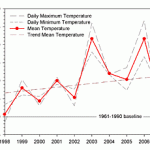
Human-made emissions be it from buildings, business, agriculture or transport are now commonly accepted to be the main cause of the global warming trend which is currently being experienced. The Sustainable Energy Research Group is conducting research on climate change issues by assessing future climate impacts in particular in terms of the future performance of buildings. ...
Assessment of Urban Microgeneration Solutions 2004 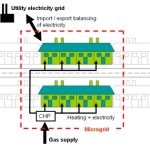
The group’s research is looking at existing housing developments from the 1970s, 1980s, 1990s and 2000s to determine the scope and potential impact of microgeneration technologies and energy efficiency measures on the residential scale.

